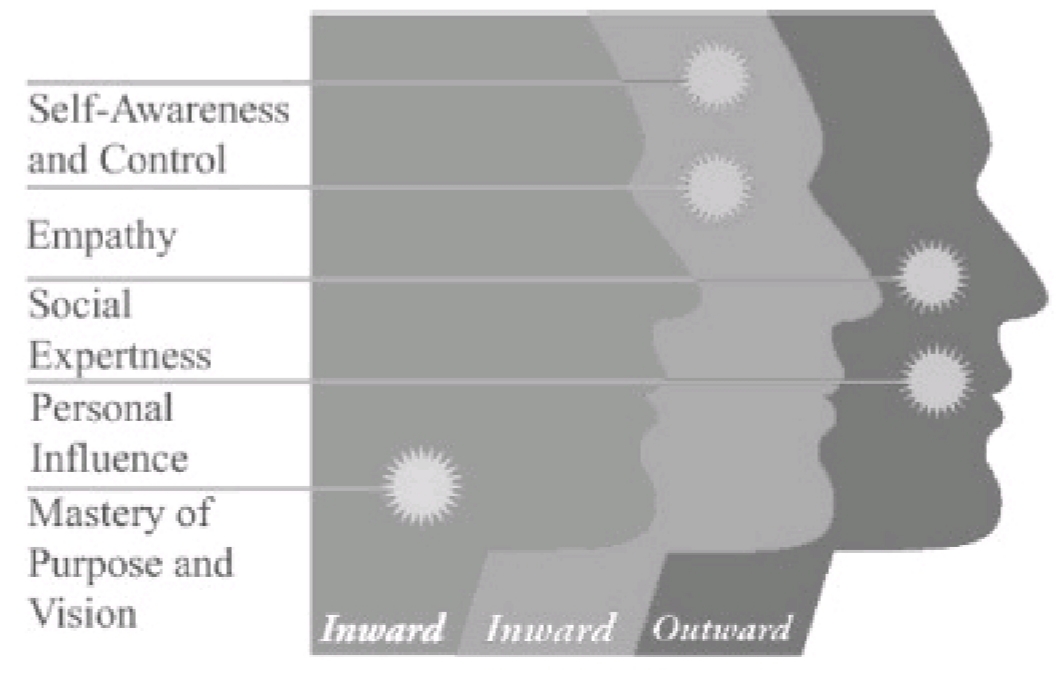
Five Areas of Emotional Intelligence that Will make you a better leader
Leadership
Many, even very experienced professionals face lot's of difficulties managing relationships. This is true for both internal relationships with collaborators and external relationships with partners and the rest of the world.
While every emotional intelligence expert have their approach to helping people make improvements in how they manage their emotions and its effect on people, they will all without a doubt agree that the following five areas are very instrumental to helping people get a handle of their emotions. These areas include: Self awareness and control, Empathy, social expertness, Personal Influence, and Mastery of Purpose and Vision. Three of these components relate to our internal world (self-awareness and control, empathy, and mastery of purpose and vision). The other two help us build solid relationships with the external world (social expertness and personal influence). However, it is important to recognize that they are interrelated and one component builds on the other. For example without self-awareness and control, it is difficult, if not impossible, to improve our relationships with the outside world.
1. Self-Awareness and Control.
It refers to the avility to fully understand ourselves and use that information to manage emotions productively. This area includes the competencies of accurate understanding of our emotions and the impact these emotions have on our performance, accurate assessment of strengths and weaknesses, understanding our impact on others, and self-management or control, including managing anger, disappointment or failure (resulting in resilience), and fear (resulting in courage).
2. Empathy. The ability to understand the perspective of others.
This area includes the competencies of listening to others, understanding others’ points of view, understanding how our words and actions affect others. Here we want to avoid hurting people but we want to rather be of service to them. We want to feel their pain and show them that we do by taking actions and making gestures that show that we really do. We can for example cry with people who cry, mourn with those who mourn and share in the joy of those rejoicing.
3. Social Expertness. This represents the ability to build genuine relationships and bonds.
One who is a social expert knows how to express concern for people, express care and even conflicts in ways that will always help relationships prosper. People who are social experts have built competencies that helps them build strong, profitable and lasting relationships, they are organization savvy, master the art of collaboration, as well as conflict resolution.
4. Personal Influence. This is what many will commonly refer to as leadership.
.It is the ability to positively lead and inspire others, as well as ourselves. Leading others, creating a positive work climate, and getting results from others are the components of influence. It is also closely linked to self- confidence, initiative and motivation, optimism, and flexibility.
5. Mastery of Purpose and Vision. The ability to bring authenticity to our lives and live out our intentions and values is what we refer to here as mastery of purpose.
It is the most internally seated of all the aspects of emotional intelligence, and it serves as a foundation on which to build a more emotionally intelligent life. It is, in essence, both the reason we strive for emotional intelligence and the driver that keeps us anchored. If we can identify our purpose, it is much easier to determine what type of emotional reactions will serve our purpose and which will defeat it.
Mastery of these five areas of emotional intelligence can be of tremendous benefit to both an individual and the organization they work for. They can avoid certain emotional reactions and pitfalls that can extinguish careers and affect organizational success.
By Takor Ronald